
Food may taste blander
While it’s tempting to blame weight gain on loving the taste of food too much, it might not be true—in fact, it appears to be exactly the opposite. Inflammation from weight gain can reduce the number of taste receptors by 25 percent in mice, according to a study published in PLoS Biology. This may lead people to overeat even more, as they try to get the same flavor reward from their favorite foods that they used to, compounding the problem. So, what’s a weight-challenged foodie to do? Here are 12 foods that will turn your meals into calorie burners.

Leaving the house suddenly feels terrifying
Feeling anxious? It turns out that gaining weight can increase anxiety levels, according to a study published in Menopause. Researchers found that women with a higher waist-to-height ratio were far more likely to suffer from anxiety than their peers. The gut microbiome plays a role in the regulation of mood by influencing tryptophan and serotonin, as described by researchers in Nutrients. Here are 9 foods that calm anxiety (and three that make it worse).

Migraines rear their ugly head
Suffering from migraines like never before? Weight gain can bring them on. More than 20 years of research has shown that going from a normal weight to overweight significantly raises your risk of getting these splitting headaches, and people who are obese are more likely to suffer from chronic migraines, according to the American Migraine Foundation. Not sure why you’ve suddenly put on a few pounds? Check out these 11 sneaky factors that can make you gain weight (and aren’t food or lack of exercise).
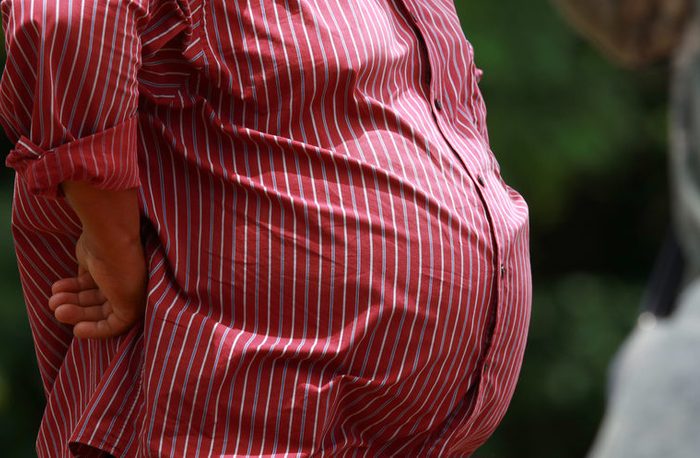
Men store fat in areas they don’t want
“Moobs” (man boobs) can be a side effect of overall obesity, but what can make fat deposit in this one area more than others? Blame hormones. Gynecomastia is triggered by estrogen levels that are too high or are out of balance with testosterone levels. Estrogen, a hormone that controls female traits, is stored in fat cells and the more fat a person has, the more estrogen they have, according to research in the New England Journal of Medicine. Men should beware of sudden changes in breast size, which can be one of the surprising signs of male breast cancer.

Serious stomach pain sidelines you
Suddenly feeling sharp, stabbing pains in your back or upper abdomen? It could be gallstones, and gaining weight significantly increases your risk of getting the painful condition and the severity, according to the National Institute of Diabetes and Digestive and Kidney Diseases.
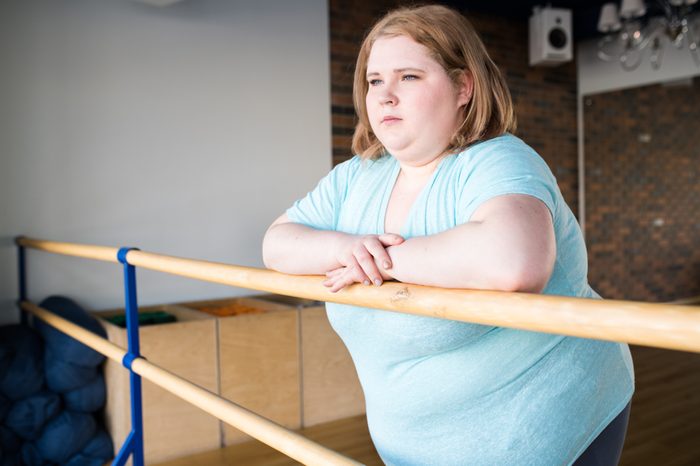
You’re super bummed out, and nothing cheers you
Obese people have a 32 percent more likely to experience depression compared with people of normal weight, according to a study published in the Journal of the American College of Nutrition. One tip that will help both your mood and your waistline? Take a nap!

You have trouble conceiving
One of the most heartbreaking consequences of weight gain is an increased risk of infertility, in both men and women, according to published research. Having extra adipose tissue can disrupt hormones and make it harder to conceive. Surprised? Your weight is just one of 15 everyday things that could be affecting your fertility.

Viagra ads suddenly catch your attention
Having a difficult time performing in the bedroom? Obesity and overweight contribute to erectile dysfunction (ED), according to a report in American Family Physician. It can also be a sign of a more serious health condition. Thankfully, ED responds to losing even a few pounds.
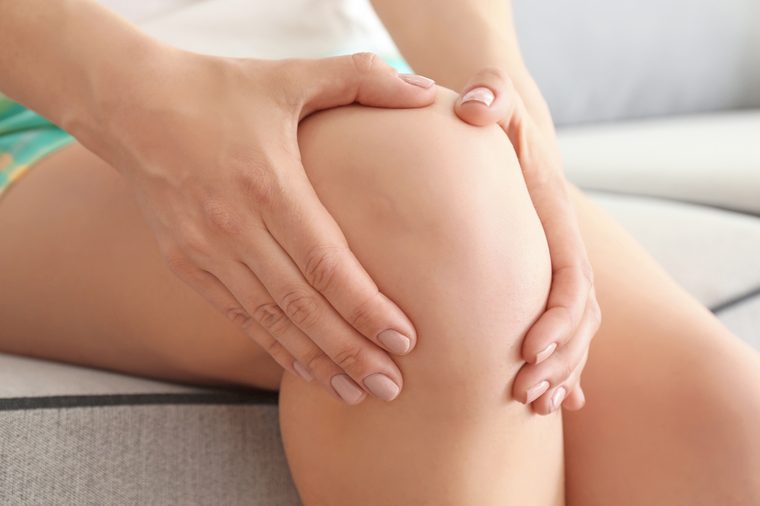
Your muscles are sore and you didn’t hit the gym
Unexplained muscle soreness is one sign of a vitamin D deficiency. What does a vitamin have to do with your weight? Overweight and obese folks are more likely to be deficient in vitamin D, according to a review article in Current Opinion in Endocrinology & Diabetes and Obesity. Why? Even if you’re getting enough D through sunlight or supplements, it gets diluted in the extra fatty tissue. Weight gain can also put you at a higher risk of other vitamin and mineral deficiencies, they added. The good news is, restoring vitamin D can help you lose weight. Not all supplements are created equal. Before buying vitamin D, learn about this version that’s twice as effective.
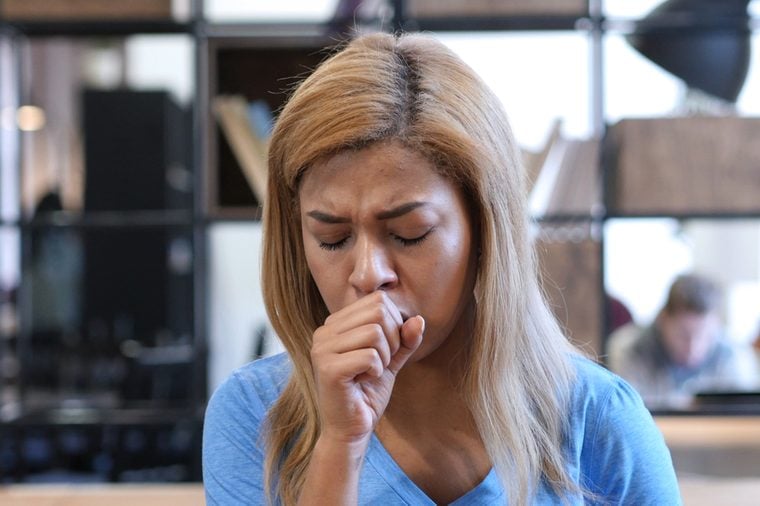
Painful burps after dinner become the norm
Heartburn is the worst. The fiery chest and throat pain can seriously take the fun out of eating a delicious meal. If you’ve suddenly started having more or worse flare-ups, it might be time to check the scale. Gaining abdominal weight puts you at a higher risk of heartburn, according to a review in Gastroenterology. Excess body fat around the middle can increase pressure in the stomach and cause the sphincter muscle between the stomach and esophagus to open when it shouldn’t. Here are 13 natural heartburn remedies that everyone should know.

You start snoring like a freight train
Does your partner gear up for bed with earplugs, a white noise machine, and snore spray at the ready? It’s a good sign that your snoring is out of control. One cause of loud, persistent snoring is sleep apnea, a condition that causes you to stop breathing many times during the night, and can be brought on or worsened by weight gain, according to a study published in Sleep Medicine Reviews. The good news? Losing weight will improve your sleep quality.
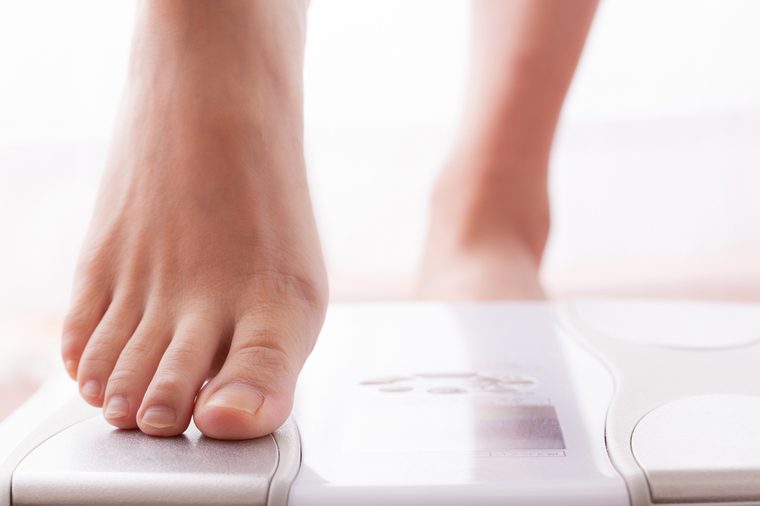
Your DNA changes
It’s long been thought that some genes may cause weight gain but the opposite can also be true—weight gain changes your genes. Gaining weight has the power to change your body on its most basic level, by altering gene expression in your DNA, according to a study published in Nature. The genes that experienced the most significant changes had to do with metabolism and inflammation, they found. Thankfully it also works in reverse: Try these easy ways to turn off your fat genes.
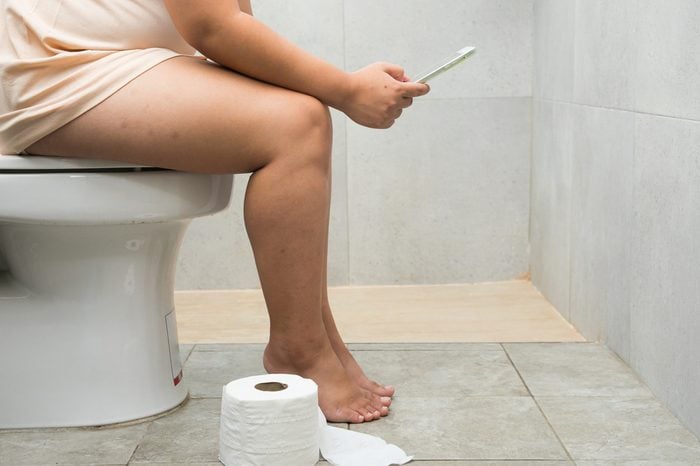
Peeing three times a night becomes the new normal
Midnight potty trips are a punchline for many jokes about aging, but if you’re consistently having to pee during the night it’s no laughing matter, as it can be an early warning sign of chronic kidney disease and failure, says the National Kidney Foundation. What does your weight have to do with your kidneys? A lot: Obese people are more likely to progress to end-stage kidney disease according to a review in Nephron. Don’t miss these proven weight loss tips from people who have lost 50+ pounds.

Online shopping or gambling are eating up your savings
Wondering why you’re suddenly struggling with self-control? The scale might have some answers. A 10 percent weight gain is enough to change your brain in significant ways, according to research published in Psychological Science, and that can alter your personality. People who gained weight scored much higher on impulsivity and were less likely to resist temptations of all kinds, the researchers found. Read on for 50 things doctors wish you knew about losing weight.

